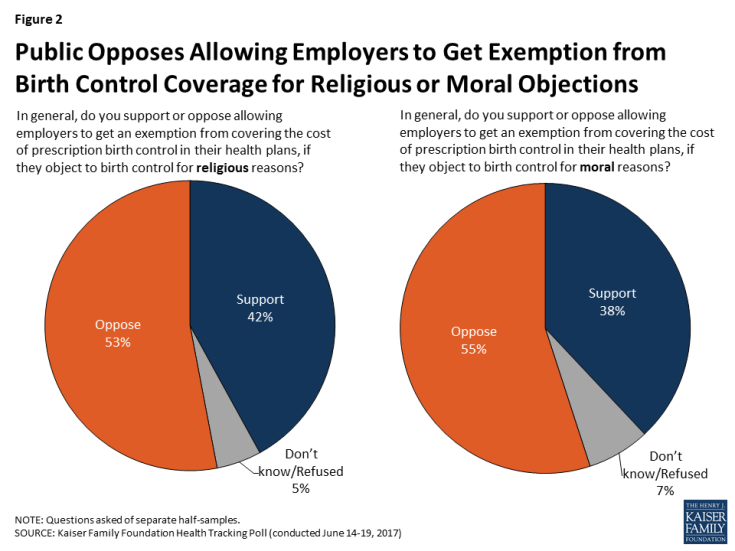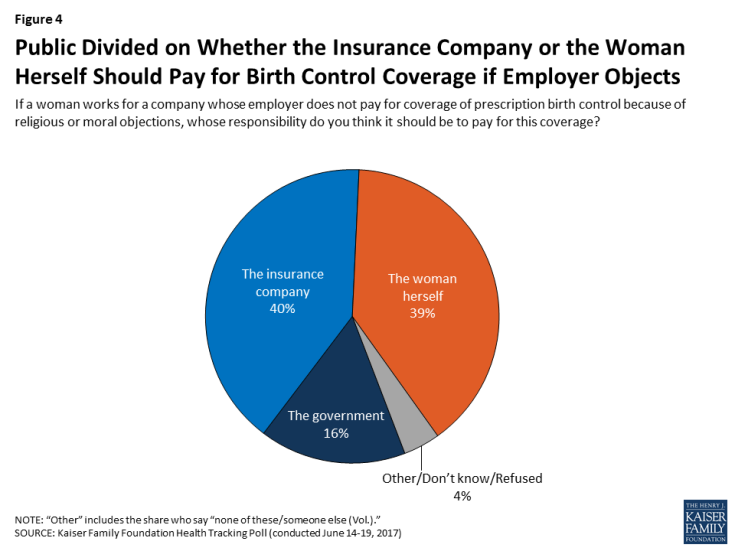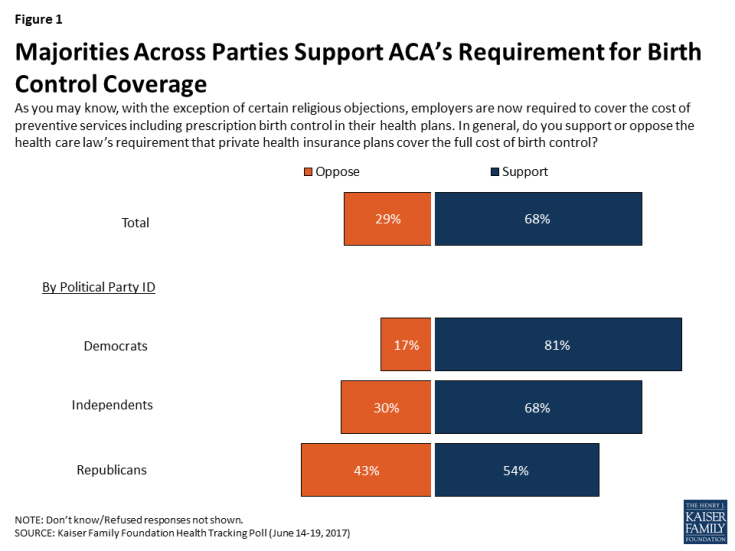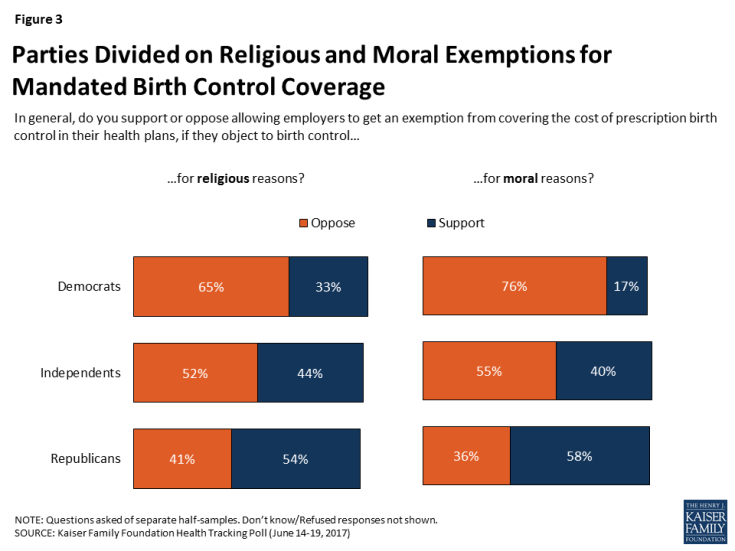Kaiser Health Tracking Poll – June 2017: Women’s Health
The Affordable Care Act (ACA) requires employers to cover the full cost of prescription birth control as part of their health insurance plans. This section of the June Kaiser Health Tracking Poll finds that a majority of the public (68 percent) support the requirement for private health insurance plans to cover the full cost of birth control. This includes a majority of Democrats (81 percent) and independents (68 percent), as well as 54 percent of Republicans.
Exemptions to Birth Control Requirement for Religious or Moral Reasons
In 2014, the Supreme Court of the United States issued their decision in Hobby Lobby v. Burwell which established that “closely held” for-profit corporations could be exempt from the birth control requirement if their owners had religious objections. Recently, there has been a suggestion that the Trump administration could expand this exemption to include a broader group of employers who object to birth control for either religious or moral reasons. Overall, larger shares of the public oppose rather than support allowing employers to get an exemption from covering the full cost of prescription birth control for either religious (53 percent vs. 42 percent) or moral (55 percent vs. 38 percent) reasons. There is no difference in attitudes depending on whether the exemption is for “religious” or “moral” reasons.

Figure 2: Public Opposes Allowing Employers to Get Exemption from Birth Control Coverage for Religious or Moral Objections
There are strong partisan differences on this issue. A majority of Democrats oppose allowing employers to get exemptions for religious reasons (65 percent) and moral reasons (76 percent). On the other hand, more than half of Republicans support allowing employers to get an exemption if they object to birth control for religious reasons (54 percent) or moral reasons (58 percent). Independents are more divided than partisans but lean toward opposition with about half opposing exemptions to the requirement for religious (52 percent) or moral (55 percent) reasons.
Public Divided on Who Covers Birth Control Costs if Employer Gets Exemption
If an employer receives an exemption from covering the cost of prescription birth control due to either religious or moral reasons, the public is divided on who should be responsible for picking up those costs with similar shares saying it is the responsibility of the insurance company (40 percent) as say it is the responsibility of the woman herself (39 percent). Fewer (16 percent) say it is the government’s responsibility.

Figure 4: Public Divided on Whether the Insurance Company or the Woman Herself Should Pay for Birth Control Coverage if Employer Objects
Differences by Gender Dependent on Party Identification
Majorities of female Democrats and female independents say that if an employer gets an exemption from covering the cost of birth control it should be the responsibility of the insurance company to pay (57 percent and 54 percent, respectively) while six in ten female Republicans (62 percent) say it should be the responsibility of the woman herself. Among men, a majority of male Republicans (65 percent) say it is the responsibility of the woman herself, while male Democrats and male independents are more divided. Half of male independents say it is the responsibility of the woman herself while half of male Democrats (48 percent) say it is the responsibility of the insurance company.
| Table 1: Perceptions of Responsibility Driven by Gender, Party Identification | ||||||
| Percent who say if a woman works for a company that does not pay for birth control coverage, the following should be responsible to pay: | Male | Female | ||||
| Dem | Ind | Rep | Dem | Ind | Rep | |
| The insurance company | 48% | 32% | 25% | 57% | 54% | 24% |
| The woman herself | 25 | 50 | 65 | 14 | 31 | 62 |
| The government | 22 | 14 | 8 | 25 | 13 | 10 |
| None of these/Someone else (vol.)/Don’t know/Refused | 5 | 5 | 2 | 4 | 2 | 4 |


